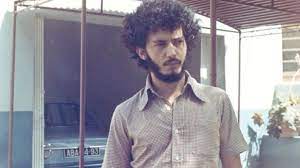DECADES of silence and fear followed the 1977 massacre of perhaps as many as 90,000 people in Angola, but as the families of the disappeared started to speak out, demanding answers, the government took action in an attempt to promote reconciliation. Though in some cases its attempts appear to have gone cruelly wrong.
For João Ernesto van Dunem it was like his parents had been killed for a second time.
First, hopes were raised for the man who was orphaned when he was three months’ old.
Angola’s justice minister appeared on national television last year to announce that the remains of his mother and father had been found after 45 years, along with those of other people.
“I thought maybe finally I would have my parents back,” he tells the BBC. Sita Valles and José Van Dunem were two of the leaders of an uprising in 1977.
They were young members of the MPLA government disaffected by what they saw as the venality of their colleagues. What exactly happened that May is still a source of controversy.
The exhumation of the bones of those who had been dumped in mass graves was supposed to be part of a process of official reckoning.
But Mr Van Dunem’s hopes for answers have since been crushed.
After an official investigation identified the remains, a separate independent team of forensic anthropologists said the bodies were in fact not connected to him.
“I asked myself whether the Angolan authorities were trying to retraumatise my family? Was it intentional? How could they do this to us after all these years of pain?” asks Mr Van Dunem, an economist currently based in Lisbon.
In 2018, he and other orphans of the massacre set up an association, M27, demanding the truth about what happened, the recovery of their parents’ remains and the issuing of death certificates
A year later, the Angolan government broke its silence.
President João Lourenço established a commission to investigate acts of political violence since independence in 1975, including the events of 1977 and the 27-year war with Unita rebels which ended in 2002.
On 26 May 2021, Mr Lourenço issued a public apology for the massacre and asked for forgiveness for what he described as “the great evil”.







